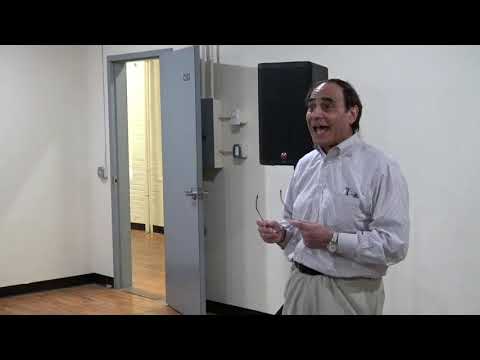A short, simple bill that strengthens Rhode Island’s commitment to fighting climate change…
“First, it makes the carbon emission reductions… more stringent, more in keeping with current science,” said Conservation Law Foundation Senior Attorney Jerry Elmer. “The second change as you may gather is that it changes those purely aspirational precatory unenforceable goals into mandatory required carbon emission reductions.” The Act on Climate 2020 bill was introduced in the Rhode Island General Assembly
February 12, 2020, 1:56 pm
By Steve Ahlquist
“First, it makes the carbon emission reductions… more stringent, more in keeping with current science,” said Conservation Law Foundation Senior Attorney Jerry Elmer. “The second change as you may gather is that it changes those purely aspirational precatory unenforceable goals into mandatory required carbon emission reductions.”
The Act on Climate 2020 bill was introduced in the Rhode Island General Assembly last week, and the bill enjoyed the immediate support of a large number of environmental advocacy groups, including Conservation Law Foundation (CLF) and Climate Action Rhode Island (CARI).
As explained by CLF Senior Attorney Jerry Elmer to a packed house at a recent CARI meeting, the Act on Climate 2020 (House Bill 7399 and Senate Bill 2165) is a short, simple bill that strengthens Rhode Island’s commitment to fighting climate change through the establishment of a statewide greenhouse gas emission reduction mandate. The bill would require Rhode Island to reduce its greenhouse gas emissions 100 percent by 2050 and bring Rhode Island into line with the mandatory, enforceable greenhouse gas emission reductions already in place in neighboring Massachusetts and Connecticut.
The Act on Climate 2020 Act builds on the Resilient Rhode Island Act of 2014, the state’s first-ever comprehensive climate bill calling for reductions of carbon emissions of 45 percent by 2035 and 80 percent by 2050 below 1990 levels. Unfortunately, the carbon emission reduction goals in the Resilient Rhode Island Act were aspirational only and lacked accountability and transparency. Also, the reduction targets are based on outdated science. Even the goals expressed in the Act on Climate 2020 Act may not be strong enough to prevent the worst effects of climate change.
“As it was originally written,” said Elmer at the CARI meeting, “the Resilient Rhode Island Act would have put into place mandatory carbon emission reductions for the entire state of Rhode Island. In their infinite wisdom, when the General Assembly actually enacted that bill, they… made those mandatory carbon emission reductions purely optional, aspirational, preparatory. The bill is unenforceable.”
[This bill updates that 2014 bill], continued Elmer, “First, it makes the carbon emission reductions… more stringent, more in keeping with current science…The second change as you may gather is that it changes those purely aspirational precatory unenforceable goals into mandatory required carbon emission reductions.”Another way the Act on Climate 2020 bill is stronger is that it’s enforceable by private lawsuit. “This bill provides a private right of action to sue the state if it doesn’t follow the requirements and mandates of the bill,” said Elmer. “That means that any person… or entities like Climate Action Rhode Island or CLF could “sue to enforce the provisions of the law…”
Elmer noted the pushback to be expected from the likes of the American Petroleum Institute, whose State House lobbyist Lenette Forry-Menard, is paid $5,160.00 per month to keep Rhode Island addicted to fossil fuels. (Forry-Menard is also is paid ridiculous money to advocate against raising the minimum wage. See here and here.)
Elmer also noted the pushback from those who might want to see a stronger version of the bill. “There are groups in Rhode Island that won’t support the bill because there is no green jobs or Green New Deal component to it,” said Elmer. “That is true. I think the bill is a very, very good one because it’s clean and short and effective and provides for a huge carbon emission [reductions] in a mandatory way. But it is true that there are things that are not included in the bill.”
Those interested in advocating for this bill are invited to attend Climate Action Rhode Island’s Climate Crisis Advocate Training this evening in Pawtucket. Details here.
Here’s the full video of Jerry Elmer’s presentation on the Act on Climate 2020 bill:
UpriseRI is entirely supported by donations and advertising. Every little bit helps:
Become a Patron!







